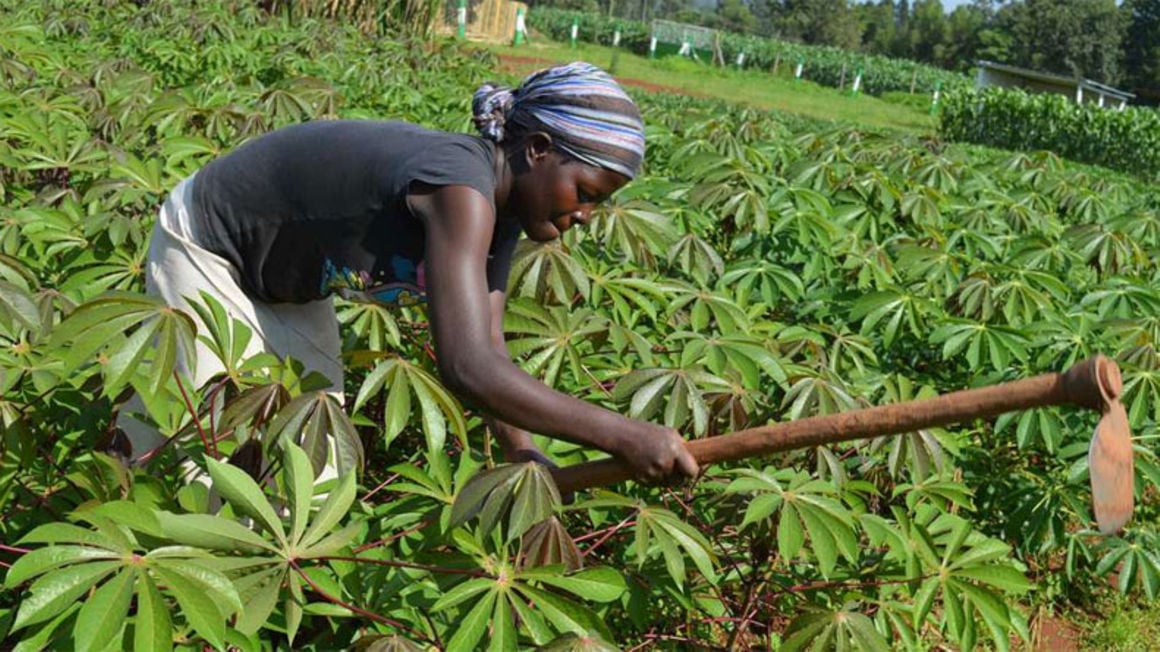The Ecologist
2nd August 2014
http://www.theecologist.org/News/news_round_up/2501027/brazil_gmo_bt_corn_no_longer_resists_pest_attack.html

Fall armywom larva in a sweetcorn ear.
Photo: Judy Baxter via Flickr
GMO corn varieties that express insecticidal Bt toxins are failing in the field, with reports of infestations of the fall armyworm on Bt corn in Brazil and the USA. Now the EU is poised to approve one of the failing varieties for use on European farms.
There are barely any non-GMO seeds available … it is very uncomfortable that the companies are blaming the farmers.
The Association of Soybean and Corn Producers of the Mato Grosso region (Aprosoja-MT) has complained that its members’ genetically modified ‘Bt corn’ crops are no longer resistant to insect pests.
That’s corn which has been genetically modified to produce an insecticidal toxin that repels or kills pests – principally Spodoptera frugiperda, also known as fall armyworm, corn leafworm or southern grassworm.
The Bt toxin is meant to provide protection to the crop without needing to be sprayed with insecticide. But reports from farmers allege that the Bt corn is actually less resistant to attack by Spodoptera caterpillars than non-GMO varieties.
Now farmers have been forced to apply insecticides to their crops, racking up additional environmental and financial costs – after having already paid a premium price for the GM corn seeds.
Deceptive advertising?
The loss of resistance to Bt corn caterpillars was identified by Aprosoja-MT in March, when the first reports of emerged from Mato Grosso producers frightened by what they saw on the field.
Aprosoja-MT began to gather technical reports with data, photos and economic analysis of producers’ financial losses, estimated at $54 per hectare in terms of extra insecticide and application costs.
The association is now calling on Monsanto, DuPont, Syngenta, and Dow companies to offer solutions as well as compensate the farmers for their losses.
“We want companies point to a rapid solution to the losses and also a way to compensate those who were harmed”, says the president of Aprosoja-MT, Ricardo Tomczyk. “It is a typical case of product that promised an outcome that was never delivered – i.e., deceptive advertising”
Blame the farmers
The association has given the seed companies ten days in which to offer solutions to the problems presented by the GM varieties, as well as a way to compensate the losses faced by farmers in Mato Grosso.
But Monsanto and other seed companies are unlikely to accommodate the farmers. According to Reuters, “seed companies say they warned Brazilian farmers to plant part of their corn fields with conventional seeds to prevent bugs from mutating and developing resistance to GMO seeds.”
However Tomczyk responded that the seed companies instructions on creating insect refugia of non-GMO corn were vague and hard to follow. And in any case, he added, “There are barely any non-GMO seeds available … it is very uncomfortable that the companies are blaming the farmers.”
Aprosoja-MT is attempting to negotiate an agreement with the seed companies, but insists that farmers are ready to sue for their pesticide costs.
Not for the first time
Earlier this year, a similar problem arose in the US, when scientists confirmed that corn-destroying rootworms had evolved to be resistant to the GMO corn engineered to kill them.
And according to the non-profit TestBioTech, the GMO maize 1507 -which may soon be approved for cultivation in the European Union – is one of those now failing in Brazil.
This maize variety, developed by US companies Pioneer/DuPont and Dow, combines a Bt insecticidal protein with tolerance to glufosinate herbicides.
According to a study published in the journal Crop Protection, certain pests in Brazil are becoming resistant to this maize line only few years after market approval.
Farias et al. (2014) found resistant populations of Spodoptera in the federal states Bahia and Rio Grande del Sul. According to the authors, development of resistance in fall armyworm was first noticed in 2012, the third year after the start of cultivation of maize 1507 in Brazil.
Industry response – add more GM traits
The industry response to such loss of efficacy is not to encourage biodiversity, but to further modify the organisms, according to TestBioTech:
“The case of Brazil is an example for an overall trend showing that nearly twenty years after the start of commercialization of Bt crops, there are problems in several countries growing this kind of genetically engineered crop.
“Industry tries to tackle this issue by commercialization of so called ‘stacked traits’ that produce several different Bt toxins. The best known example is Monsanto’s SmartStax maize that produces six different Bt toxins.”
TestBioTech also argues that the European Food Standards Agency should re-consider its likely approval for maize 1507 given the fast developing resistance to it among pests, also citing “fundamental data gaps in risk assessment.”
Further information:
Farias et al. (2014), Field-evolved resistance to Cry1F maize by Spodoptera frugiperda (Lepidoptera: Noctuidae) in Brazil
Industry influence in the risk assessment of genetically engineered Maize 1507 (2014)
Genetically engineered maize 1507 – Industry and EFSA are disguising true content of Bt toxin in the plants (2014)
High-Level-Risk-Maize 1507 (2013)Testbiotech figure: Bt crops: Resistance development in pest insectsA fall armyworm (Spodoptera frugiperda) caterpillar in a sweetcorn cob. Photo: Judy Baxter via Flickr.
Read Full Post »


